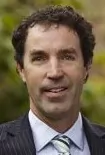As part of an investigation into a workplace accident, a WorkSafe inspector has the power to require the employer, or person who controls the place of work, to make a statement. This is called the duty holder interview and it would typically be a director of the employer/ principal company who would be interviewed. This interview is usually the last step in the actual investigation process before there is a decision made about whether to prosecute or not. It provides an opportunity for the duty holder to get as much favourable information to WorkSafe as possible but also brings with it obligations and risk. It is critical that the duty holder is well prepared and represented at the interview.
WorkSafe has very broad powers in relation to these interviews. They can require the employer or person who controls a place of work, to make or provide statements, in any form and manner the inspector specifies, and about conditions, material or equipment or health of employees who work there. This has been interpreted by the courts as entitling WorkSafe to request that questions in interviews be answered, and it imposes obligations on employers to answer. This is subject only to the right to not self-incriminate. The court has described the inspectors powers as coercive.
WorkSafe can say who they want to interview and they have no obligation to provide that person with an indication of the type of allegations that may be made during the interview.
It is an offence to not only obstruct delay hinder or deceive an inspector, but also to fail to assist with facilitating entry, examination or inquiry. Under the Worksafe Prosecution Policy, where obstruction occurs there is an expectation that there would be a prosecution. It is important as a result to cooperate and work with the inspector to a degree to ensure it cannot be said that there is obstruction, but at the same time being aware and conscious of the criminal nature of the investigation which is occurring, and receiving advice about what information should or must be provided and what should not.
The new legislation will not alter any of these concepts. The proposed liability of directors will mean that it is even more important that there is focus on preparing for interviews and being aware of the right to not answer questions if it may tend to self-incriminate.
The content of this article is intended to provide a general guide to the subject matter. Specialist advice should be sought about your specific circumstances.

